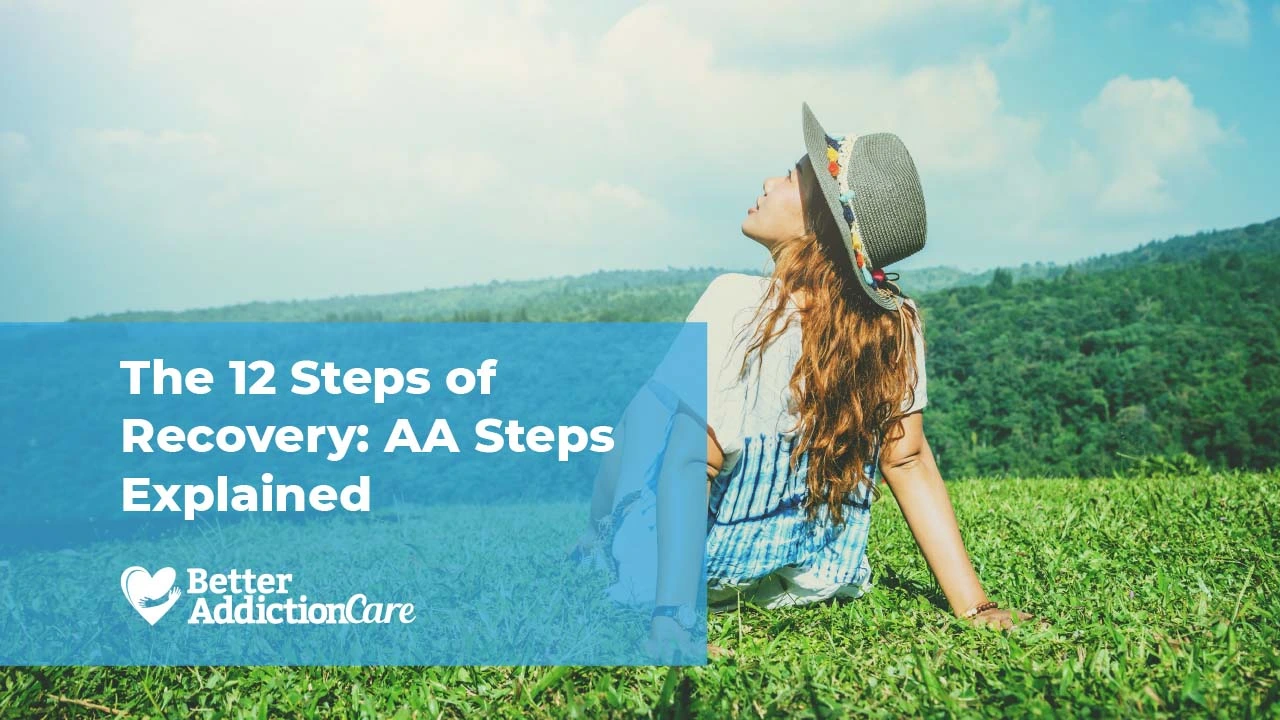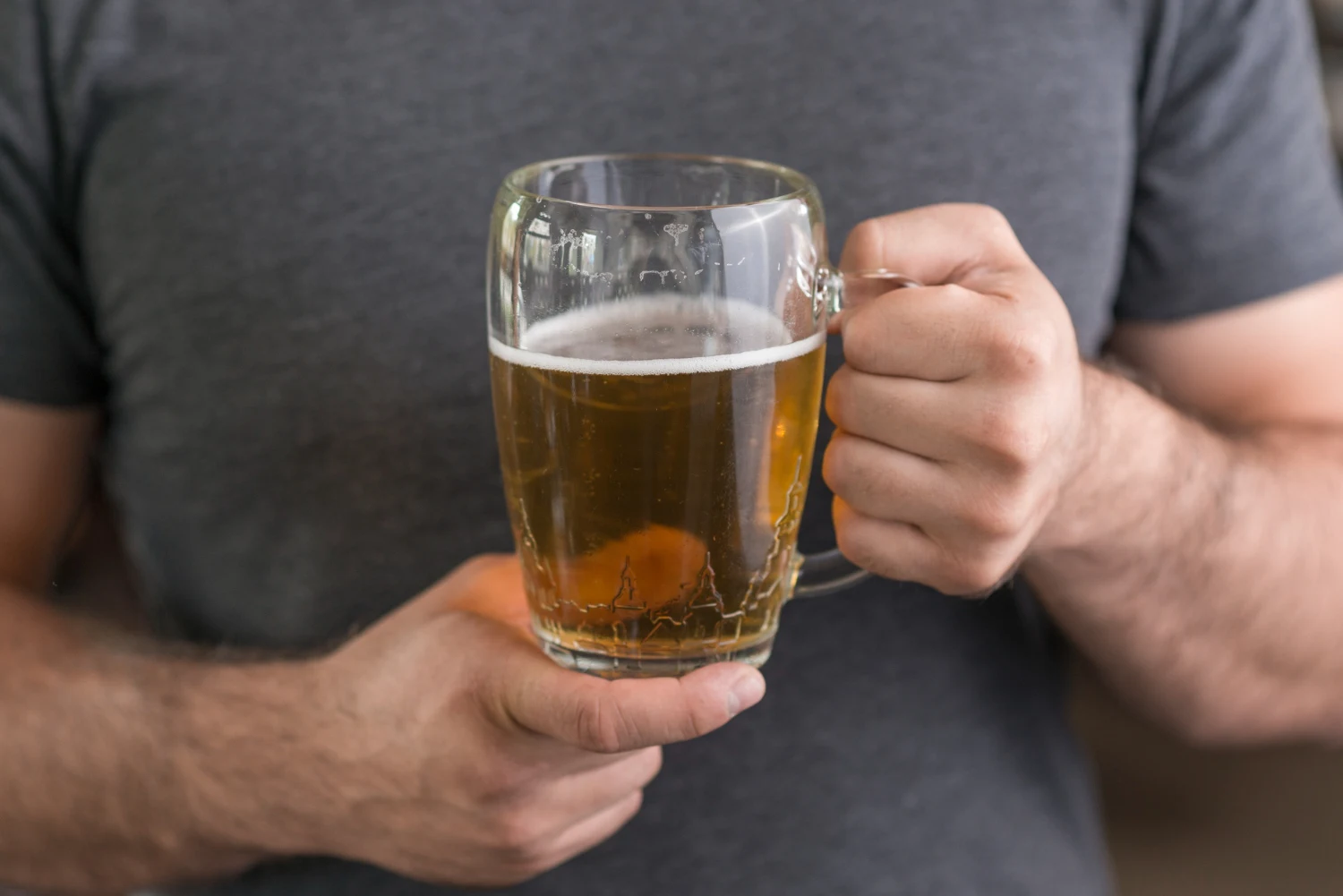Ready to Get Sober? Here are AA and NA 12 Steps for You
If you or a close one finally decides it's time to take the lead in their lives and get sober, getting informed on the best and most efficient ways is essential. Alcoholics Anonymous (AA) and Narcotics Anonymous (NA) created a 12-step plan that aims to be a map for your never-ending maze. After reading this article, you'll know the 12-step plan and hope to win this battle.

What Can Alcoholics Anonymous (AA) and Narcotics Anonymous (NA) Offer You?
To start, if you’re not familiar with Alcoholics Anonymous (AA) and Narcotics Anonymous (NA), they’re both support groups. Still, AA helps people with alcohol addiction, while NA helps people with drug addiction.
AA pioneered helping people struggling with drinking problems in the 1930s. Then, in the 1950s, NA was founded.
To help their members, both created a 12-step program to fight addiction. The 12-step program used by AA and NA shares many similarities but also has some differences tailored to the specific challenges of alcohol addiction versus drug addiction.
Everyone's journey to getting better is unique - some people follow the steps individually, others might take a little break or go at their own pace, and that's perfectly fine!
These associations also offer meetings hosted regularly, typically held in places like community centers, churches, hospitals, or other accessible locations. Because everyone builds their path, there is no wrong or right way, and listening to other people’s experiences and stories might be helpful along the way because not only can you get great advice from people you can relate to, but you also hear what didn’t work for them so that you don’t do it. Most importantly, being surrounded by a non-judgemental community that listens to you and makes you feel supported is a great way to keep your mental health strong and on the right track.
What exactly are the 12 Steps of AA and NA?
The common foundation relies on these 12 concepts:
Admission: Admitting powerlessness over the addiction
Step one to stop an addiction is admitting you need help, and the openness to seeking assistance from higher powers, support groups, or trusted friends and family makes you feel hopeful you can win this battle when you are not just relying on yourself.
Belief: Believing in a higher power to help with recovery
Step two is realizing you don't want to feel powerless; rather, you want to consider that there might be something beyond yourself that can guide and support your recovery journey, maybe a higher force. It is about finding hope and believing in your recovery.
Decision: Deciding to turn life over to this higher power
During step three, you consciously choose to rely on that same higher power from step two for guidance and strength in recovery. You're committed to change and willing to explore new ways of living that support sobriety and well-being.
Inventory: Taking a moral inventory of oneself
Take a searching and fearless moral inventory of yourself. This step involves honestly examining your past behaviors, thoughts, and feelings to understand how they've contributed to your addiction and what needs to change.
Admission: Admitting to oneself, to a higher power, and another person the exact nature of one's wrongs
Admit to yourself, a higher power, and another person the exact nature of your wrongs. This step is about openly acknowledging and taking responsibility for your mistakes and the harm caused by your addiction.
Willingness: Being entirely ready to have these defects of character removed
Be entirely ready to have your higher power remove all these character defects. It's about being willing and open to letting go of negative behaviors and attitudes that hold you back from recovery.
Humility: Humbly asking a higher power to remove shortcomings
Humbly ask your higher power to remove your shortcomings. This step involves seeking guidance and strength from your higher power to overcome weaknesses and develop healthier habits.
List: Making a list of all persons one has harmed and becoming willing to make amends to them all
Make a list of all persons you have harmed and become willing to make amends to them all. This step is about identifying and acknowledging the people you've hurt due to your addiction and being prepared to make things right with them.
Amends: Making direct amends to such people wherever possible, except when doing so would injure them or others
Make direct amends to such people wherever possible, except when doing so would injure them or others. Here, you take action to apologize and make restitution for the harm caused unless doing so would cause further damage.
Continued inventory: Continuing to take personal inventory and, when wrong, promptly admitting it
Continue to take personal inventory, and when you are wrong, promptly admit it. This step emphasizes ongoing self-reflection and accountability in your behaviors and relationships, helping you stay on track in recovery.
Prayer and meditation: Seeking through prayer and meditation to improve contact with a higher power, praying only for knowledge of its will for oneself and the power to carry that out
Seek through prayer and meditation to improve your conscious contact with your higher power, praying only for knowledge of its will for you and the power to carry that out. It's about deepening your spiritual connection and finding guidance and peace through quiet reflection and spiritual practices.
Carry the message: After undergoing these steps, one experiences a spiritual awakening and tries to pass on this message to others and practice these principles in all affairs.
Having had a spiritual awakening due to these steps, carry this message to others and practice these principles in all your affairs. This final step encourages sharing your experiences and insights with others who are struggling with addiction, and living out the principles of recovery in your daily life.
Why should you follow these 12 steps?
The 12-step plan's primary goal is to empower people to become more self-aware, take responsibility for their actions, and grow spiritually.
Have you ever wondered about the strength it takes to admit you need help finally? Or how liberating it feels to know you’re not alone in this fight? These steps aren’t just about stopping the addiction—they’re about finding a new way to live.
|
Why the Steps Are Important |
Benefits of Following the Steps |
Drawbacks of Not Following the Steps |
|
Structured Guidance |
Provides a clear, sequential roadmap for addressing addiction and its underlying issues. |
Lack of structure can leave individuals feeling lost and unsure how to navigate their recovery journey. |
|
Holistic Healing |
Addresses the physical, emotional, and spiritual aspects of addiction, promoting overall well-being. |
May lead to neglecting certain aspects of healing, hindering complete recovery. |
|
Peer Support |
Fosters a sense of community and shared experience through group settings. |
Isolation can make recovery more challenging without the support network. |
|
Personal Accountability |
Encourages self-reflection and ownership of one's actions, which is crucial for lasting recovery. |
With accountability, individuals may be able to stay committed to their sobriety. |
|
Spiritual Growth |
Connection with a higher power or a more significant purpose can provide grounding and focus. |
Absence of spiritual growth can leave individuals feeling fulfilled and lacking a sense of direction. |
How to get started?
The first step is to find a local AA (Alcoholics Anonymous) or NA (Narcotics Anonymous) meeting. You can easily do this by visiting the official AA or NA websites and using their meeting finder tools. They have listings for meetings worldwide, so you can find one nearby.
Then you just show up! Meetings are open to anyone who wants to get sober from addiction. They usually occur in community centers, churches, or other public spaces. You’ll find a welcoming and non-judgmental environment when you attend your first meeting. Everyone there understands what you’re going through.
In the meeting, you’ll hear others share their stories and experiences with the 12 steps. You can share your story if you feel comfortable, but there’s no pressure. Just being there and listening can be incredibly powerful.
You’ll usually find potential sponsors in the meetings. A sponsor is someone who has been through the 12 steps and can guide you through the process. Don’t be afraid to ask someone whose story resonates with you; they’ll likely be honored to help.
With your sponsor’s help, you’ll start working through the steps individually. Each step builds on the last, guiding you through the recovery process.
It’s important that you attend the meetings regularly. Try to make it a part of your weekly routine. The more you immerse yourself in the community and the steps, the more support you’ll have.
Incorporate daily practices like prayer, meditation, and self-reflection. These help you stay connected to your recovery journey and focus on your goals.
Stay in touch with your sponsor and other group members, even outside of meetings. Many people find it helpful to exchange phone numbers and check in with each other for support and encouragement.
As you progress, you can help others who are just starting. Sharing your story and offering support can be incredibly rewarding and reinforce your commitment to recovery.





